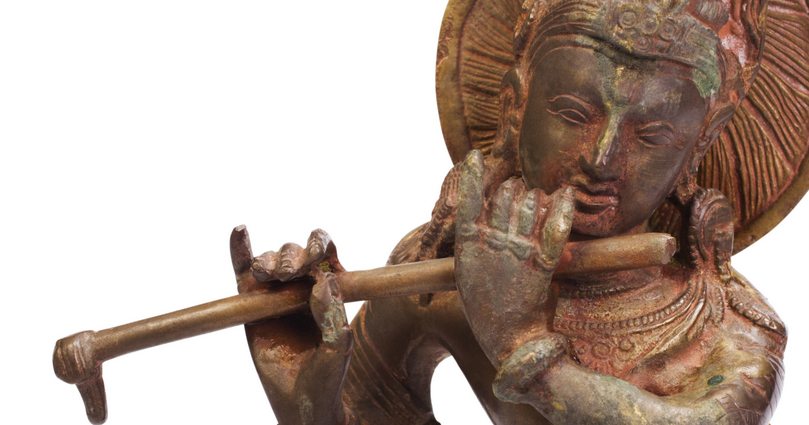Relevance of Krishna’s Advice in Today’s World

Ever wondered about how to apply Krishna’s advice to your modern-day life? Read on to gain some useful insight that could help you live your life in today’s world according to Krishna’s advice to Arjuna in the Bhagavad Gita.
Symbolism in the Mahabharata
In the great Indian epic of Mahabharata, when Arjuna is faced with a difficult choice between duty on one side and his elders, relatives and teachers (loved ones) on the other, he is beset by weakness born of doubt. His knees tremble, he breaks into a cold sweat and his bow falls from his hand. In such a condition of moral and physical weakness, Arjuna turns to his philosophical guide, Krishna and beseeches him for advice.
Krishna shakes Arjuna up by his opening sarcastic comment about the bout of weakness that had come over the brave warrior, Arjuna, at an hour of danger such as the one where the army of the righteous—the Pandavas—had been arrayed against the forces of evil—the Kauravas—at the epic battlefield of Kurukshetra.
The Kurukshetra symbolizes the human mind and the Pandavas and Kauravas symbolize the forces of ‘Good’ and ‘Evil.’ The battle between them symbolizes the ongoing battle that happens in our minds: should we be honest in our business dealings or should we use unethical shortcuts, should we be loyal in our relationships or should we give in to transient and immoral temptations, should we think positively or negatively—the list is endless.
Krishna’s Advice
Krishna shares wisdom about the soul’s existence with Arjuna at his hour of debilitating confusion. He tells him that it is only the body that perishes, the soul merely moves from one body to another just like one would change into new clothes after discarding old ones.
He advises Arjuna not to weep over things which are merely illusions but to remain steadfast in his duty or “dharma”—to fight ‘Evil’ so ‘Good’ may prevail—even if it meant having to wage war against one’s kith and kin.
A Case in Point
Raghav and Manav were two brothers who got along famously. Their parents had brought them both up in a positive and loving manner and there was no sibling rivalry whatsoever between the two.
Manav, the younger one, respected his brother a lot and always did as he told him to. Raghav, being five years older than Manav, started assisting their father after completing his education. He had a great knack for business and boosted his father’s business profits significantly after joining it.
After completing his studies, Manav followed in his big brother’s footsteps and joined the family business too. He learnt a great deal under his brother’s and father’s guidance and felt lucky to have been born into such a fabulous family.
His experience suddenly turned sour when one day, after a meeting with his company’s Chartered accountant, he learnt that his father and brother had been, for years, evading tax through clever moves. He had good citizenship values and felt that all citizens owed it to the country to be fair in paying taxes.
His father and brother disagreed and tried to coax him into being like them. A bitter argument followed but Manav stuck to his view. His father reflected upon the matter overnight after the bitter argument and after a lot of contemplation agreed to go ahead with Manav. He cried and told him that he was proud of having a son like him who corrected his ways.
Conclusion
Doing the right or good thing is not always easy or comfortable—especially in today’s times. If you want to follow Krishna’s advice and live your life on the principles dictated by ‘dharma,’ you will need to be strong, independent and clear about the path you want to follow in life.
Being weak or vulnerable to others’ views can tempt you away from the right path more easily than you might realize. Do your ‘dharma’ by fighting the negative and remaining positive in your outlook and karma.









Leave a Reply